You're looking to boost your SEO rank but aren't sure where to start? AI keyword optimization tools might be your answer! They're revolutionizing SEO, making it easier and more effective.
From understanding their benefits, selecting the right tools, to overcoming challenges, we'll cover it all.
Let's dive into the world of AI SEO tools and see how they're shaping the future of keyword optimization.
Understanding AI in SEO
Diving into the world of SEO, you'll quickly discover that AI plays a pivotal role in optimizing your online presence. AI, or Artificial Intelligence, is an expansive field of technology that's revolutionizing numerous industries, including digital marketing. When it comes to SEO, AI contributes significantly in enhancing keyword optimization and content creation.
AI tools can analyze massive amounts of data at an incredible speed, helping you uncover hidden patterns and trends. They're capable of predicting user behavior, identifying popular search queries, and determining the best keywords to target. You'll appreciate how these insights can guide your SEO strategies and boost your visibility online.
Take Google's AI algorithm, RankBrain, as an example. It's designed to understand and interpret complex search queries, improving search engine's understanding of human language. RankBrain can pick up on nuances and contexts that traditional algorithms might miss, improving the accuracy and relevance of search results. By understanding how it works, you can craft content that aligns with its criteria, giving you a competitive edge.
Furthermore, AI can assist in creating SEO-friendly content. Tools like WordAI can rewrite content to make it more unique and engaging, while ensuring it's optimized for search engines. They can also suggest improvements, making your content more appealing to both your audience and search algorithms.
Benefits of AI Keyword Tools
Building on the insights from AI in SEO, you'll find that using AI keyword tools offers a multitude of benefits in enhancing your website's search engine ranking. These advanced tools not only save your time but significantly improve the quality of your SEO efforts.
One of the key benefits is precision. AI keyword tools utilize complex algorithms to analyze and predict the most effective keywords for your content. You're no longer guessing or relying on trial and error. Instead, you're leveraging data-driven insights to optimize your keyword usage.
Secondly, AI keyword tools offer a level of efficiency that manual keyword research simply can't match. You'll find yourself saving hours, if not days, of effort. These tools streamline the process, quickly generating lists of relevant, high-ranking keywords that you can immediately incorporate into your content.
Lastly, you'll appreciate the competitive edge these tools provide. With AI's ability to monitor and adapt to search engine algorithm changes, you're always one step ahead. You'll improve your website's visibility, attract more visitors, and increase conversions.
Selecting Appropriate AI SEO Tools
Now that you understand the benefits of AI keyword tools, it's time to consider the three key factors in choosing the right AI SEO tools for your needs. These factors include your specific SEO objectives, the tool's features and capabilities, and your budget.
Firstly, it's crucial to identify your SEO goals. Are you looking to increase traffic, boost conversion rates, or improve your website's visibility on search engines? Your objectives will guide you in selecting a tool that specializes in your area of need. For instance, if your goal is to improve content optimization, consider tools that offer features like keyword suggestion, content analysis, and SERP tracking.
Secondly, assess the tool's features and capabilities. The best AI SEO tools offer a range of features including keyword research, on-page SEO analysis, backlink checker, and competitor analysis. They're also user-friendly, provide insightful reports, and integrate seamlessly with your existing tools. Bear in mind, you'll want a tool that's capable of growing with your needs as your SEO strategy evolves.
Lastly, consider your budget. While it's true that you get what you pay for, don't assume the most expensive tool is the best. Many providers offer tiered pricing, so you can start with a basic plan and upgrade as your needs expand. Remember, the goal's to find a tool that provides value for your money.
Choosing the right AI SEO tool is a crucial step towards achieving your SEO goals. With careful consideration of your objectives, tool features, and budget, you're well on your way to boosting your SEO rank.
Steps to Implement AI Keyword Optimization
In your journey towards harnessing the power of AI for SEO, the first step is to identify and understand the keywords relevant to your business or industry. These are the words that your potential customers are using to search for products or services like yours. AI tools can help streamline this process, providing you with a comprehensive list of keywords based on your input.
Once you've identified your keywords, the next step is to integrate them into your content strategically. Don't simply stuff your content with keywords; your aim should be to create relevant and informative content that naturally incorporates these keywords. AI tools can assist by suggesting keyword placement that optimizes readability and SEO.
Next, monitor your keyword performance. AI tools provide real-time tracking and analysis that lets you see how your keywords are performing. You'll get insights into which keywords are driving traffic and which ones might need tweaking.
Lastly, continually optimize your keywords. SEO isn't a one-and-done deal; it's an ongoing process that requires regular adjustments. As search trends change, so too should your keywords. AI tools make this easier by providing up-to-date keyword suggestions, allowing you to stay ahead of the curve.
Implementing AI keyword optimization doesn't have to be a daunting task. With the right tools, you'll be able to identify the best keywords for your business, strategically incorporate them into your content, monitor their performance, and continually optimize them for the best results. With these steps, you're well on your way to boosting your SEO rank.
Case Study: AI Tools in SEO
Let's dive into a real-world example to illustrate how a company can effectively use AI tools to enhance their SEO strategy. Imagine you're the digital marketing lead for a growing online retail store. Your team has been struggling with keyword optimization and ranking your website on search engines.
You decide to integrate AI-based SEO tools into your strategy. To start, you implement an AI tool like BrightEdge, which uses machine learning to identify high-performing keywords tailored to your business. The tool analyzes your website, your competitors, and the current market trends, providing you with a list of optimized keywords. You're amazed at how precise and relevant the keyword suggestions are.
Next, you use an AI content optimization tool, MarketMuse. It not only suggests keywords but also provides content suggestions based on those keywords. It's like having a virtual content strategist on your team.
After a few months of implementing these AI tools, you start seeing significant improvement. Your website's traffic increases by 35%, and your ranking on search engine results pages (SERPs) improves drastically. You're now consistently ranking on the first page for most of your targeted keywords.
This case study demonstrates the potential of AI tools in SEO. They not only save you time by automating keyword research but also enhance the effectiveness of your SEO strategies. With AI, you're not just guessing what might work; you're leveraging data-driven insights to make informed decisions.
This is the power of AI in SEO, and it's a game-changer for any business striving to improve its online visibility.
Overcoming Challenges With AI Optimization
Despite your team's initial success with AI tools, you may still encounter a few challenges in your SEO optimization journey. These bumps in the road, however, shouldn't discourage you. Rather, they're opportunities for growth and improvement.
One common challenge is the steep learning curve associated with AI technologies. You're not alone if you find AI daunting at first. To overcome this, invest time in education. Learn the ins and outs of your AI tool. Many providers offer training programs and resources. Take advantage of these. You'll soon find yourself more comfortable and proficient.
Duplication of keywords is another issue. AI may suggest popular keywords that you're already using. It's easy to get carried away and overstuff your content. But remember, keyword stuffing can penalize your SEO rank. To avoid this, use AI tools to find long-tail keywords and semantically related terms. This'll diversify your keyword portfolio and improve your SEO.
Lastly, don't overlook the importance of human touch. AI can help identify trends and generate keywords. But it can't engage your audience or craft compelling narratives. That's your job. Use AI as a tool, not a crutch. It should complement your skills, not replace them.
Overcoming these challenges may seem daunting, but don't be discouraged. With a bit of patience, education, and strategic thinking, you'll successfully navigate these hurdles. Remember, the goal is to use AI to boost your SEO, not to create more work. Keep this in mind, and you'll be on your way to SEO success.
Future of AI in Keyword Optimization
So, how might the future of AI in keyword optimization unfold, given what you've learned and the challenges you've overcome? Well, it's about to get even more exciting.
AI's potential in keyword optimization is still largely untapped. Given the speed of technological advancements, you can expect AI to become increasingly sophisticated, leading to more accurate and efficient keyword optimization. It's predicted that future AI tools will have the ability to understand the context and sentiment behind search queries, providing a more nuanced approach to keyword optimization.
The ongoing development of machine learning algorithms will likely lead to AI systems that can predict changing trends and preferences in real-time, allowing you to adapt your SEO strategies swiftly. As we move further into the future, AI might even be capable of creating content that's perfectly optimized for both search engines and human readers.
Furthermore, imagine an AI tool that can identify gaps in the market and suggest unique, untapped keywords that could drive significant traffic to your website. It's not as far-fetched as it sounds. Given the rate at which AI is evolving, such a tool could very well be on the horizon.
As AI continues to revolutionize the digital marketing landscape, it's crucial that you stay abreast of these developments and adapt your strategies accordingly. By doing so, you're not just preparing for the future of AI in keyword optimization, you're actively shaping it.
The future is coming, and it's filled with the promise of AI-powered SEO triumphs. Are you ready to seize the opportunities it offers?
Frequently Asked Questions
What Is the Cost Range for Various AI SEO Optimization Tools?
You're curious about the cost range for AI SEO optimization tools, right?
Well, it varies widely. Some free tools can give you basic insights, but for advanced features, you might need to pay.
Monthly subscriptions can start from $20 and go up to $1000 or more, depending on the tool's complexity and capabilities.
It's important to weigh the tool's benefits against its cost to ensure you're getting value for your money.
Are There Any Free Trial Versions of These AI SEO Tools AvAIlable for Beginners?
Yes, there are free trial versions of AI SEO tools available for beginners. It's a great way to familiarize yourself with their capabilities before committing to a purchase.
SEMrush, Moz Pro, and Ahrefs all offer limited free trials. However, remember that these trials may not offer full access to all features, so you'll get a basic understanding, but won't experience the tool's full potential.
How Does the Integration of AI in SEO Tools Impact Other Digital Marketing Strategies?
When you integrate AI in SEO tools, you're enhancing other digital marketing strategies too.
It streamlines content creation, social media, and email marketing by identifying trends and consumer behavior.
It's not just about improving SEO rank, it's about understanding your audience better.
This makes your overall marketing strategy more effective, since you're tailoring your content and campaigns based on reliable data.
What Are Some Potential Drawbacks or Limitations of Using AI for SEO Keyword Optimization?
While using AI for SEO keyword optimization might seem groundbreaking, it does have its shortcomings. You might encounter issues with over-optimization, leading to penalties from search engines. There's also the risk of AI not fully understanding user intent, resulting in irrelevant keywords.
Plus, relying too heavily on AI might mean you miss out on human creativity and intuition in keyword strategy. Remember, AI tools are aids, not replacements for your own expertise.
Can AI SEO Tools Be Used Effectively by Beginners, or Is Advanced Knowledge Required?
Absolutely, as a beginner, you can effectively use AI SEO tools. They're designed to be user-friendly and often come with tutorials or guides.
You don't need advanced knowledge to start. However, as with any tool, you'll get better results as you gain experience and understanding.
Conclusion
In wrapping up, you've now grasped how AI can supercharge your SEO strategy.
With the right AI keyword tools, your site can climb the ranks, bringing in more traffic and conversions.
Remember, implementation can pose challenges, but the payoff is worth it.
As AI continues to evolve, so will its impact on SEO.
So, stay on top of these trends and let AI be your secret weapon in mastering keyword optimization.
















